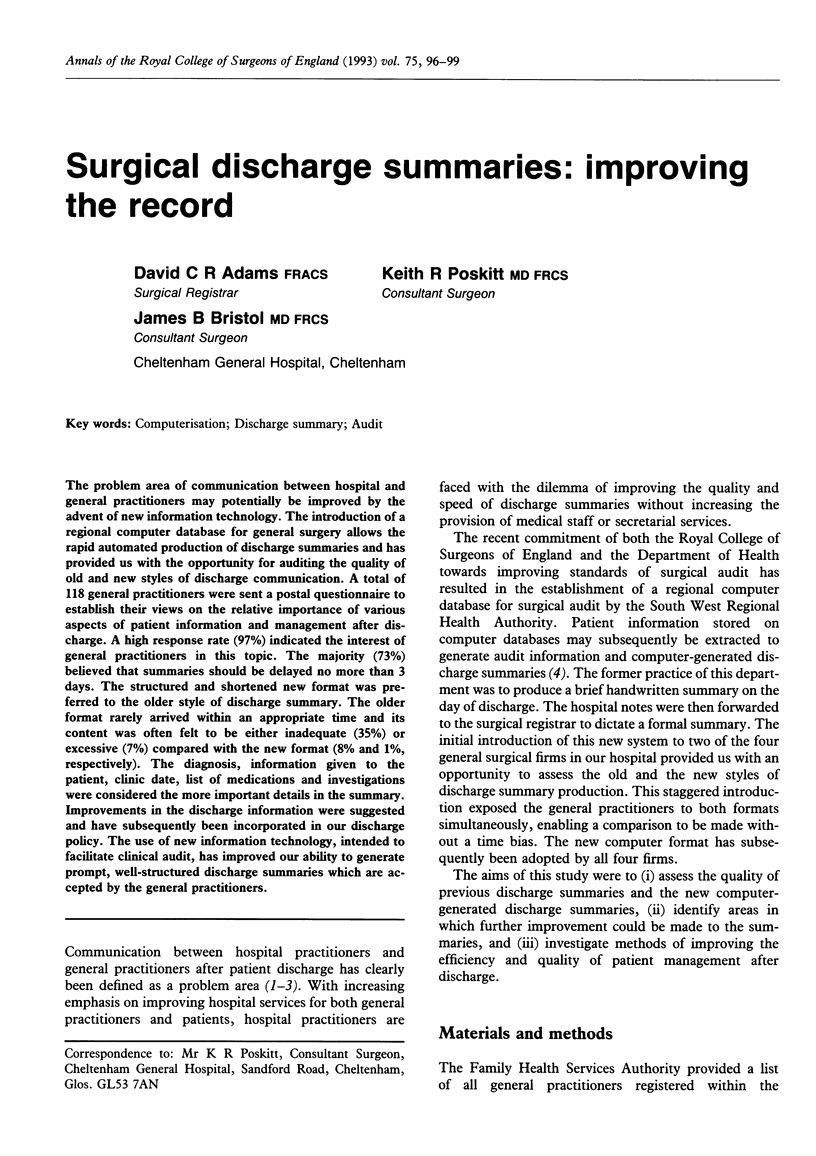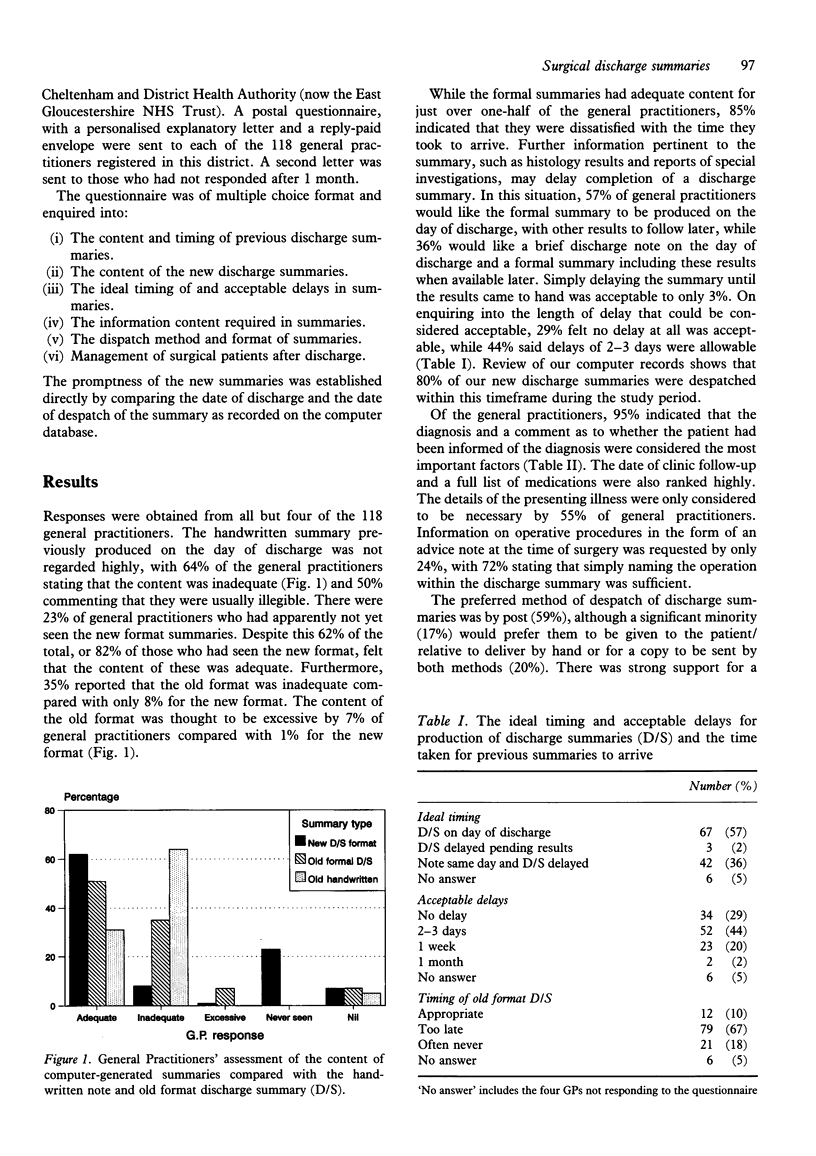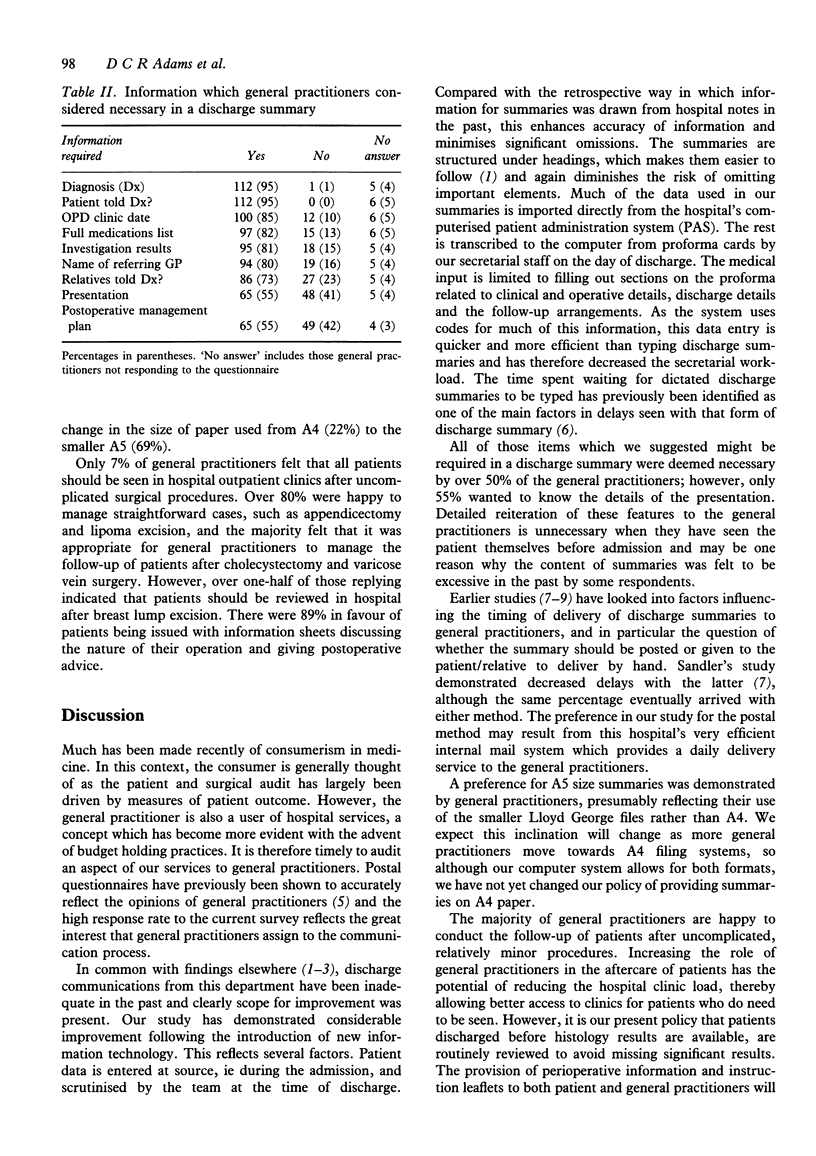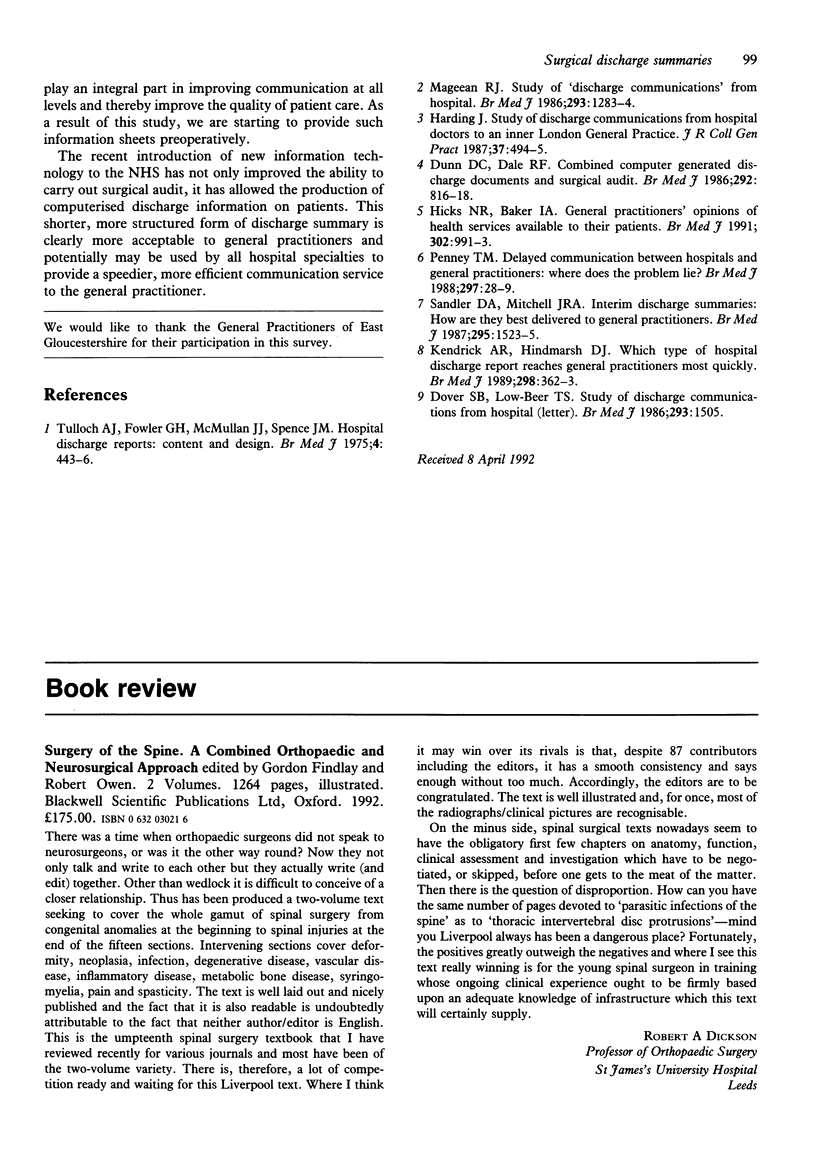Abstract
The problem area of communication between hospital and general practitioners may potentially be improved by the advent of new information technology. The introduction of a regional computer database for general surgery allows the rapid automated production of discharge summaries and has provided us with the opportunity for auditing the quality of old and new styles of discharge communication. A total of 118 general practitioners were sent a postal questionnaire to establish their views on the relative importance of various aspects of patient information and management after discharge. A high response rate (97%) indicated the interest of general practitioners in this topic. The majority (73%) believed that summaries should be delayed no more than 3 days. The structured and shortened new format was preferred to the older style of discharge summary. The older format rarely arrived within an appropriate time and its content was often felt to be either inadequate (35%) or excessive (7%) compared with the new format (8% and 1%, respectively). The diagnosis, information given to the patient, clinic date, list of medications and investigations were considered the more important details in the summary. Improvements in the discharge information were suggested and have subsequently been incorporated in our discharge policy. The use of new information technology, intended to facilitate clinical audit, has improved our ability to generate prompt, well-structured discharge summaries which are accepted by the general practitioners.
Full text
PDF



Selected References
These references are in PubMed. This may not be the complete list of references from this article.
- Dover S. B., Low-Beer T. S. Study of "discharge communications" from hospital. Br Med J (Clin Res Ed) 1986 Dec 6;293(6560):1505–1505. doi: 10.1136/bmj.293.6560.1505. [DOI] [PMC free article] [PubMed] [Google Scholar]
- Dunn D. C., Dale R. F. Combined computer generated discharge documents and surgical audit. Br Med J (Clin Res Ed) 1986 Mar 22;292(6523):816–818. doi: 10.1136/bmj.292.6523.816. [DOI] [PMC free article] [PubMed] [Google Scholar]
- Harding J. Study of discharge communications from hospital doctors to an inner London general practice. J R Coll Gen Pract. 1987 Nov;37(304):494–495. [PMC free article] [PubMed] [Google Scholar]
- Hicks N. R., Baker I. A. General practitioners' opinions of health services available to their patients. BMJ. 1991 Apr 27;302(6783):991–993. doi: 10.1136/bmj.302.6783.991. [DOI] [PMC free article] [PubMed] [Google Scholar]
- Kendrick A. R., Hindmarsh D. J. Which type of hospital discharge report reaches general practitioners most quickly? BMJ. 1989 Feb 11;298(6670):362–363. doi: 10.1136/bmj.298.6670.362-a. [DOI] [PMC free article] [PubMed] [Google Scholar]
- Mageean R. J. Study of "discharge communications" from hospital. Br Med J (Clin Res Ed) 1986 Nov 15;293(6557):1283–1284. doi: 10.1136/bmj.293.6557.1283. [DOI] [PMC free article] [PubMed] [Google Scholar]
- Penney T. M. Delayed communication between hospitals and general practitioners: where does the problem lie? BMJ. 1988 Jul 2;297(6640):28–29. doi: 10.1136/bmj.297.6640.28-a. [DOI] [PMC free article] [PubMed] [Google Scholar]
- Sandler D. A., Mitchell J. R. Interim discharge summaries: how are they best delivered to general practitioners? Br Med J (Clin Res Ed) 1987 Dec 12;295(6612):1523–1525. doi: 10.1136/bmj.295.6612.1523. [DOI] [PMC free article] [PubMed] [Google Scholar]
- Tulloch A. J., Fowler G. H., McMullan J. J., Spence J. M. Hospital discharge reports: content and design. Br Med J. 1975 Nov 22;4(5994):443–446. doi: 10.1136/bmj.4.5994.443. [DOI] [PMC free article] [PubMed] [Google Scholar]


